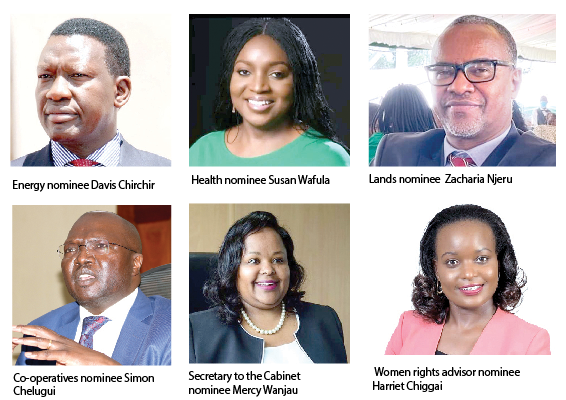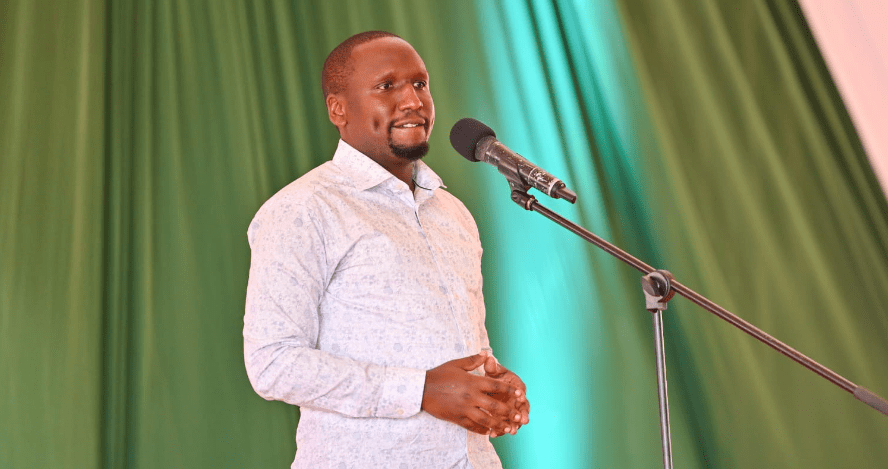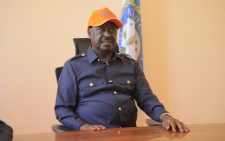It’s mix of new and old in Ruto Cabinet lineup

President William Ruto yesterday unveiled his nominees for Cabinet Secretary positions as he seeks to fully take over the government two weeks after he was confirmed as the nation’s fifth leader and a day after the Supreme Court affirmed his poll victory.
The President revealed the names of the men and women who will serve with him in the Cabinet but who will have to be vetted and approved by the National Assembly before formally taking over the offices.
He also issued an Executive Order that will spell out the roles of Deputy President Rigathi Gachagua, which will include chairing Cabinet committees and coordinating between national and county governments through the Intergovernmental Budget and Economic Council (IBEC).
The President also nominated Musalia Mudavadi as his Prime Cabinet Secretary, handing him key roles although he tried to steer the two men from clashing as he made clear the duties of each. Musalia will among other duties assist Ruto and Rigathi in coordinating with the interior ministry besides spearheading the legislative agenda of government by working with the National Assembly and Senate leadership.
House sittings
After a narrow win in the August 9 presidential election, the President took exactly two weeks to constitute the nation’s top decision-making organ, barely two weeks after as he was sworn into office on September 13.
Parliament begins formal sittings tomorrow and the President’s nominees’ names will be forwarded for vetting before they can formally take office. President Ruto is expected to address the House in his capacity as Head of State.
“It is important we set up the new Cabinet early so that we can quickly take charge of the affairs of our country and begin the process of implementing the plan that we set out before the people of Kenya,” the President said when he read the names at State House, Nairobi yesterday afternoon while flanked by Gachagua and Mudavadi.
Once formal sittings of the House begin, MPs will form an Appointments Committee that will vet the nominees in the coming weeks.The President unveiled a mix of veterans and fresh faces while also attempting to achieve the gender balance he had promised during the campaigns.
The biggest beneficiaries were his loyalists, who have stuck with him the last five years when he was technically sidelined by the then President, Uhuru Kenyatta’s administration.
Mudavadi’s role
Ruto fell short of the 11 positions he had promised women during his campaigns, picking seven substantive women CSs and making three other “Cabinet level” appointments to bring the number to 10.
Although the structure of his Cabinet will largely remain the same as the last five years, he also tried to distance himself from the remnants of the previous administration as he renamed some of the ministries, trimming the powers of some while enhancing the dockets of others.
The entrance of Mudavadi also forced the President to split the roles between him and Gachagua to avert a supremacy battle between the two powerful positions. The appointment effectively made Mudavadi the third most powerful State officer in the Executive. He will now work with the titular head of the Legislature, his friend and ally, Moses Wetang’ula. Gachagua will in addition to his role chair Cabinet committees, oversee implementation of their decisions, act as a link between the Executive and independent commissions and coordinate intergovernmental relations. This is a fairly wide ranging docket that will require him to be hands-on in the day-to-day running of government affairs.
Mudavadi will, among others, oversee implementation of government projects, facilitate inter-ministerial coordination of cross-functional initiatives and programmes. “My deputy is going to be a very busy person. I’m sending an Executive Order for print to assign my deputy a very clear responsibility that will assist me in being able to discharge the heavy responsibility put on my shoulders by the people,” President Ruto said.
His Cabinet will be populated with close allies who have been handed lucrative positions. Once endorsed by lawmakers, they will oversee the implementation of the key projects that will determine the success of the Kenya Kwanza Bottom-Up economic transformation agenda.
Despite the Cabinet being heavy with allies, he opted for former Central Bank Governor Njuguna Ndung’u as his National Treasury and Planning CS. Ndung’u will be tasked with financing key projects to be pursued by Ruto’s government through the budget process. He will also be in charge of revving up an economy that has been hit by a high cost of living and costly external debts. Ruto’s closest allies — Elgeyo-Marakwet Senator Kipchumba Murkomen and Garissa Township MP Aden Duale — have been proposed for the influential Roads and Transport and Defence dockets respectively. Together with Kandara MP Alice Wahome (Water), they will have to resign from Parliament to take over the positions, thus triggering by-elections in their constituencies.
Another close ally, Prof Kithure Kindiki, who came within an inch of being picked as Ruto’s running mate last May, has been rewarded with the Interior and National Administration docket, which makes him one of the most powerful individual in the new administration. Murkomen, Duale, Wahome and Kindiki were among the politicians who were stripped of powerful posts in the previous administration after choosing to stick with Ruto when he fell out with his predecessor, President Uhuru Kenyatta.
Their loyalty has been reciprocated with the appointments that are key in the performance of Ruto’s government.
Nominated Senator Soipan Tuiya will also resign to take over the Environment and Forestry post. Others who were nominated are Davies Chirchir (Energy and Petroleum), Simon Chelugui (Cooperatives and MSMEs) and Mithika Linturi (Agriculture). Their dockets will play crucial roles in the Kenya Kwanza administration.
Also included in the new line-up are Ababu Namwamba (Sports) and Salim Mvurya (Mining). Unless rejected by MPs, Chirchir will make a comeback to the Cabinet after he was sacked in 2015 over corruption allegations, which he was cleared of later. He has been Ruto’s Chief of Staff since the beginning of the year.
Chelugui is the only CS to be retained from the previous administration and makes history as the only individual to have jumped from one government to the other as CS since 2002. Some of the President’s partners who lost in the recent elections have also been handed a lifeline: Moses Kuria (Trade), Aisha Jumwa (Public Service and Gender) and Florence Bore (Labour and Social Protection).
A group of late comers to his camp including Alfred Mutua, who will be the Foreign Affairs CS if approved, Ezekiel Machogu (Education) and Eliud Owalo also won themselves important dockets.
The new faces are Rebecca Miano (EAC Affairs), Penina Malonza (Tourism), Zachariah Njeru (Lands) and Susan Wafula (Health). Ruto also appointed Mercy Wanjau as the Secretary to Cabinet, former Speaker Justin Muturi as Attorney General. Outgoing Energy CS Monica Juma has been picked as National Security Advisor while a new comer, Harriet Chiggai will be the Women Rights Agency Advisor.












